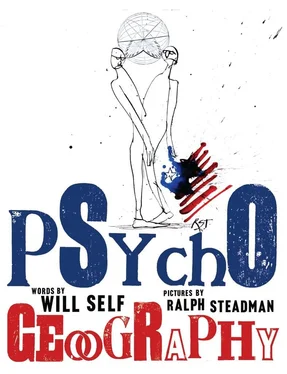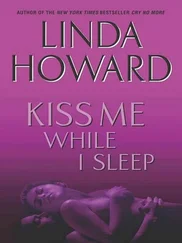I would say — and believe it when I did so — that as I came through Customs, and headed straight for the first bar, and ordered a Scotch on the rocks, or a vodka martini, straight up, a great weight would slide from my shoulders: the whole, miserable, class-bound heft of Olde Englande, that rived one man from his brother on the next barstool along. This was bullshit: the truth was that although I might have chatted more readily to Norm or Cliff, it was only because we were all citizens of the United State of Drunkenness.
Perhaps the most horrifying touring experience of all — and there were many, believe me — was when, staggering through Logan Airport, I found myself ordering a matitudinal beer inside an entire mock-up of the interior of Cheers , complete with waxworks of Norm and Cliff propped to the right and the left of me.
And New York, what was that? A city I fled into and then escaped from. A city in which even the grid pattern wasn’t simple enough for me, for I wanted to go from Elaine’s, uptown, to drink at Marylou’s down in the Village, and then to my restless bed in the grim enclosure of the Gramercy Park Hotel, ridden on a monorail of cocaine. The Strand Bookstore, on Broadway, south of Union Square, lured me in with its ‘22 miles of second-hand books’; yet I couldn’t have walked a tenth of these shelves. I was strung out, suffering a comedown from drug America, appalled by gimcrack light fitments, flimsy electric plugs, rusty water tanks and toilet stalls as flimsily protective of my modesty as matchbooks — the very quiddity of the place both massively irked me and was painfully familiar. I expected at any second to turn a corner and find myself back in the Gray’s Inn Road.

When my future wife came with me for a weekend to Manhattan in 1996 she, too, was underwhelmed. At a ritzy party, thrown for the actor Al Pacino on the Upper East Side, movie star guests and toney journalists stood about. There was no sign of the Big Pastrami, until, after a couple of hours, we were approached by a gofer:
‘Al will see you now,’ he said, gesturing towards an inner sanctum.
‘But we don’t want to see him!’ we both expostulated; and this confirmed us in our shared obtuseness, our defiant unwillingness to be impressed — let alone assimilated. We didn’t want to see Al, we didn’t want to enter any inner revolve and be slowly turned to face another actor, one who didn’t even have a script.
A year or so later, walking on Hallowe’en up from the Village to Midtown, carrying our infant son, we were checked by reveller after reveller, their vampiric make-up bleeding under the streetlights. ‘Is that baby, like, real?’ they queried. To which I might just as happily have replied: ‘Is your city?’ For I had done everything I could to reduce it to the status of a set, upon which I adopted my own hammy poses.
I have set little of my fiction in New York: the closing scene of my first novel took place in the Oyster Bar at Grand Central (I’ve always felt at home in an oyster); a story, ‘Caring, Sharing’, features neurotic, kidult New Yorkers, cared for by genetically engineered giants; and then my third novel, How the Dead Live , contained some New York scenes, extrapolated from my own mother’s verbal accounts of her life in the wartime city.
Forty-nine days after 9/11, I found myself walking through Union Square with my eldest son, then eleven years old. A candle-bearing group of Buddhists were holding a ceremony to mark the end of the bardo , the wandering of the souls that had been expunged from their material bodies by the attacks on the Twin Towers. I thought of my mother, who in the novel is resurrected as Lily Bloom, only to discover that the Tibetan Buddhist cosmology obtains, and she is doomed by her own rancour, forever to repeat the go-round of birth and death and birth again. Not even this: not even the smoky, chthonic pit beyond Vessey Street, or the heart-aching flyers advertising the dead-presumed-missing that fluttered on every hoarding and phone booth, could jerk me out of it and make me where I was. In Manhattan I walked abroad in my mother’s caul.
When, on my next trip to New York, I was stopped at JFK and almost deported, the Deputy Head of Immigration said to me: ‘I don’t care if you choose to live in London. I don’t even mind if you travel on a British passport — when you’re abroad — but when you come here, to the United States of America, you are an American !’ I was carried away by the sheer joy of being picked for the team — any team — at last. Me, the clumsy kid with the fat thighs! Yet the feeling of warm inclusion soon faded. Never did I feel less American than when I officially became one. And let’s remember: US citizenship has a religious quality; it can be renounced purely verbally, just as all it takes to become a Muslim is a speech act.
We half-breeds, we fish-fowl chimeras, we’re always defining ourselves both by what we are not and what we are (not). Hell, let’s not get carried away by this, but in mid-Atlantic, as the stewardess awakens me from my slumber to present me with the TV dinner that accompanies this teleological show — shrimp cocktail, stir-fried chicken, the obligatory aerated dessert, a chock of Stilton cheese, Green & Black’s miniature chocolate bar, bubbly mineral water — it all impinges anew: the sense I have of being both stateless and, at one and the same time, the very model citizen of a nine-thousand-mile-long nation, that stretches from Honolulu to Hull.
If I were myself to be so elongated, and become Blakean time-goo pulled from blocky, reified time, no doubt I would sense the presence of myself, in another plane — a Boeing 757 this time — coming back the other way, pushing towards Heathrow. In it, in an identical pod, I’m curled up, writing this essay. The walk done, now it is being described. I’m eating the beef bourguignon, the wincey potatoes and dwarf carrots, while dabbling with the obligatory, aerated dessert, and still I cannot forbear from following the progress of The Ant Bully , or losing myself in the photographs of Oxford that suborn the utility of the plane’s bulkheads.
Walk Two: Suburban New York
Down the crystal hill we toboggan, leaping over cols and schussing into arêtes of the air, then the wardrobe clunk of the plane landing and its trundle into JFK. I’m off first and striding along corridors with floors speckled pale blue, grey and green: the Pointillism of the institutional. New countries are, first and foremost, new colour schemes. The ideal immigrant is a wannabe interior decorator. No queue at Immigration, because I’ve swapped one passport for the other. Nevertheless, I’ve come here, to the United States of America, and I am as alien as if I’d pulled up to the stand in a flying saucer, because while every single person in this terminal is going to roll out of it tonight, I’m intent on striding.
This has always been the most worrying part of the walk to New York, the egress from JFK. All the maps are worse than useless. They show expressways and beltways and parkways — but indicate no pedestrian rights of way. I cannot tell, from the map, if roads are elevated or sunk in the ground. The intersections between service roads and throughways may be equipped with sidewalks, or only cold, hard shoulders. Like I said, I had heard of one man who’d walked out of JFK, I even know him, but I couldn’t do anything as sensible as ask him how he did it. No, with a very British lack of preparedness — like Robert Falcon Scott, eschewing the huskies — I relish this terra incognita, this genuinely newfound land.
Читать дальше













